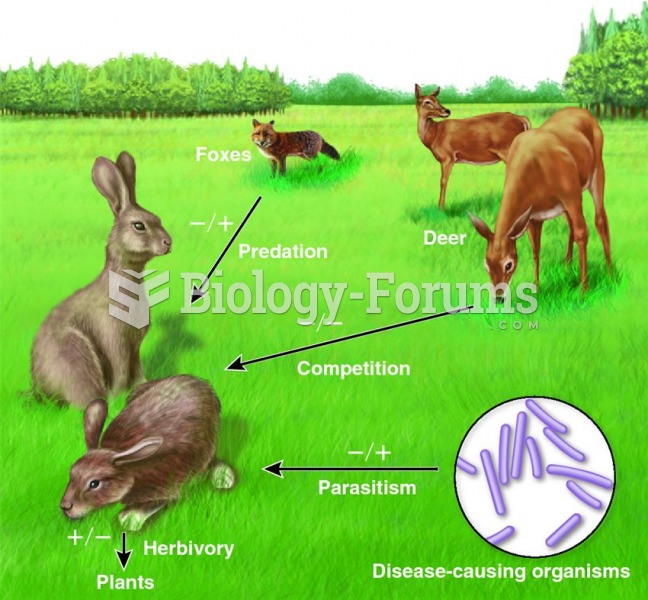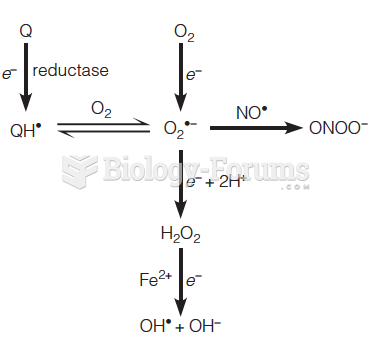This topic contains a solution. Click here to go to the answer
|
|
|
Did you know?
Atropine, along with scopolamine and hyoscyamine, is found in the Datura stramonium plant, which gives hallucinogenic effects and is also known as locoweed.
Did you know?
The newest statin drug, rosuvastatin, has been called a superstatin because it appears to reduce LDL cholesterol to a greater degree than the other approved statin drugs.
Did you know?
There are more sensory neurons in the tongue than in any other part of the body.
Did you know?
Women are two-thirds more likely than men to develop irritable bowel syndrome. This may be attributable to hormonal changes related to their menstrual cycles.
Did you know?
The most destructive flu epidemic of all times in recorded history occurred in 1918, with approximately 20 million deaths worldwide.
 Relationship between the number of CAG repeats in a gene and the age of onset of Huntington disease.
Relationship between the number of CAG repeats in a gene and the age of onset of Huntington disease.
 In one-male group species, extra males typically reside in all-male “bachelor” groups. These are Han
In one-male group species, extra males typically reside in all-male “bachelor” groups. These are Han





